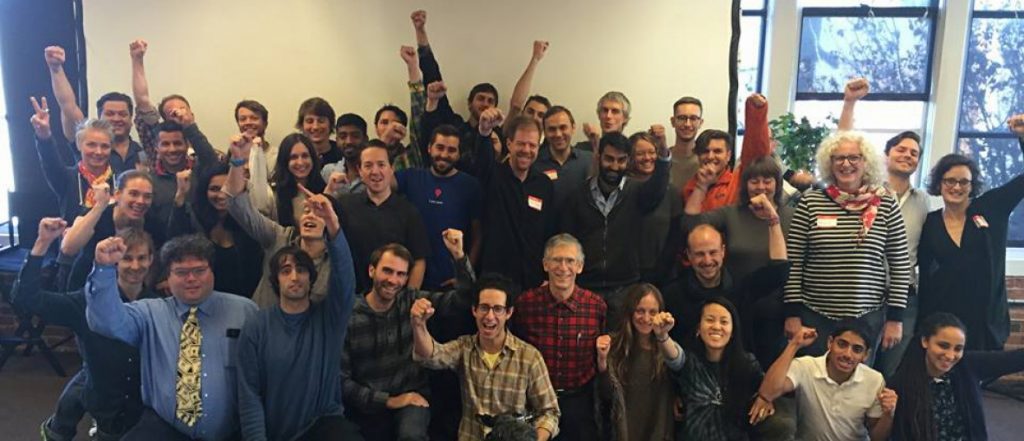What would you do if you had a guaranteed income of $1,250 a month?

A social-enterprise-marketer-slash-Lyft-driver recently started something called the My Basic Income project, a crowdfunding campaign to financially support one person (or more) for one year. Inspired by an existing project in Germany with the same premise, if the crowdfunding campaign is successful, the My Basic Income project will hold a raffle to determine who will receive $1,250 a month for twelve months. As part of the project, people signing up for the raffle would be asked to say what the income would allow them to do.
The project was started at the Basic Income Create-a-thon, which ran from November 13 – 15 in San Francisco. The Create-a-thon was put on by the Universal Income Project, a new nonprofit sponsored by the Roosevelt Institute. Interest in basic income has been rising worldwide, but the recent Create-a-thon and the resulting projects indicate that at least a small number of Americans are ready to stop talking and start taking things into their own hands.
This video was produced over the course of the Create-a-thon.
Cameron Ottens, the Lyft driver and small business owner who helped start My Basic Income, is fairly new to the idea of a basic income. He tells Civicist he first started reading about it six months ago. Once he was sold on the idea, however, he realized he realized we shouldn’t “hold our breath” waiting for our government to get to it.
“I thought the crowdfunding they were doing in Germany was a great idea—to just start, instead of waiting for a gatekeeper or politician to do it,” Ottens says. (The founders from the project in Germany actually attended the event.)
“The ultimate goal is to spread the idea of this from a personal angle,” Ottens says, which is why he is asking people to share what they would do if provided with a basic income. Ottens thinks that it will help dispel the belief that a guaranteed basic income would make everyone (else) lazy.
In the introduction to the crowdfunding campaign, Ottens writes:
Imagine if you could give someone $1,250 per month with no obligations, no limitations, and no strings attached for one full year. How would that change their life?
We want to find out! What would happen if everyone had an amount of money that covers their basic needs? Would people be lazy or would they use it to take on new risks? Would they waste it in one night or invest with intention in their futures? We don’t know, but what if we funded a full year of basic income for a complete stranger, to find out?
I asked if there would be some kind of report at the end, to prove the success of projects like My Basic Income. He acknowledge the inherent contradiction in requiring someone to do something in exchange for no-strings-attached cash—his hope is that recipients (if not all than some) would be moved to help spread the word.
The Basic Income Create-a-thon was attended by more than 60 people actively working on various projects, and more than a hundred came Sunday to see the final presentations (with another 350 watching a livestream). Jim Pugh, one of the organizers of the Create-a-thon, tells Civicist that organizers in Los Angeles and Minneapolis, Minnesota, have already reached out about conducting Create-a-thons in their respective cities.
Jim Pugh, the CEO of Share Progress, says that he connected with other advocates for universal basic income earlier this year, and the Create-a-thon is the result of their conversations. They originally came up with the idea of hosting a hackathon but as a group decided they didn’t feel comfortable having it be exclusively tech-focused. A Create-a-thon allows for input from artists, writers, filmmakers, and other non-techies.
“I haven’t worked specifically in the arts space before but recognize the value of those people involved if you want to make an emotional appeal for a new idea,” Pugh says. He tells Civicist that, as a Bay Area resident, he realizes that a more automated future is almost guaranteed, and the basic income is a feasible solution for when “full employment isn’t feasible or necessarily desirable.”
As for Ottens, he says that with a basic income he would spend a little less time driving, and a little more time growing his business.